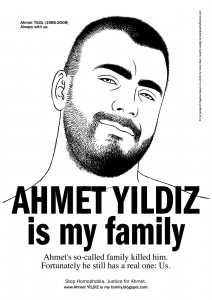The Iraq War ended yesterday. At least it did for the US military. American diplomatic and intelligence personnel and support military contractors are still there in Iraq, and number in the thousands. But America’s war in Iraq has stopped and taking its place is a clumsy and confusing set of policies and programs to try to conserve American interests and influence there after the loss of so many lives and so much money.
As we leave Iraq, we should not forget that it was the site of terrible rights abuses committed by US personnel (Haditha, Abu Ghuraib, FOB Tiger). Iraqis didn’t have to learn how to torture from Americans, they had plenty instruction in that during the rule of Saddam Hussein and his predecessors. But as the torture and rape of Iraqi prisoners in Iraqi detention facilities and black sites has now become routine one wonders how much less bad it could be now had the US been more committed to human rights in the first years of the occupation?
But other question about Iraq’s human rights situation remain – especially as much of the early ex-post facto justification for the war turned on the liberation of the Iraqi people from a truly heinous and barbaric régime, that of Saddam Hussein and the ruling Baath Party. It’s the height of historical revisionism to argue that the war was a human rights intervention, but the US occupation did create space for the emergence of Iraqi civil society, a vibrant and independent media and even governmental structures charged with the protection and promotion of human rights. That said, in the period since 2006 and the Iraqi civil war, the human rights environment in Iraq has deteriorated sharply.
Human rights failures have been the most pronounced in Iraq, as one might expect, in the protection of the country’s most vulnerable: children, widows, as well as marginalized ethnic and religious minorities. And while these groups are often the victims of abuse in other times and places, the central truth of the Iraq War and its aftermath is how it has produced such vast numbers of vulnerable people: 1.3 million refugees, 2 million internally displaced peoples and 500,000 new poor, living in shanty towns without water or proper sanitation. The Red Cross has estimated, for example, that between 1 and 3 million Iraqi households are headed by women, and the numbers of parentless children is similarly large.
But a more systemic problem faces women in Iraq, in that the kind of Iraqi state that has emerged after the war is one that is deeply committed to imposing a religious orthodoxy on society, and in fact wants to reverse any sort of secular gains by women and minorities that occurred in the pre-war period. This has meant not just increasing restrictions of women’s participation in public life, education and commerce. But it has also contributed to violence against women, in particular “honor killing,” a broader social acceptance of domestic abuse and abandonment of prohibitions of child marriage. For Iraqi women the last 8 years have seen their rights in society and even their right to live diminish exponentially.
But perhaps the greatest human rights failure in Iraq is the collapse of state protection for religious minorities. This is both a “security” problem, but also a problem of state will. The case of the Sabian Mandaeans is perhaps the worst. The Mandaeans are an Aramaic-speaking community of monotheists who predate Christianity and Islam in Iraq and live(d) in the major cities, but in particular near Basra in the south. In 2003 there were between 50,000 and 60,000 Mandaeans living in Iraq, now there are perhaps 4,000. Mandaeans have face systematic persecution by religious extremists and have had to flee Iraq. Similar attacks have taken place against Iraq’s Christians and heterodox groups like the Shabaak and Yezidis. Within a generation, most non-Muslims in Iraq will have emigrated, and with them a link to Iraq’s diverse and multi-ethnic past.
A photo from the remarkable work of Jiro Ose “Living in the Shadows: Iraqi Refugees”
As Iraqi politics begins to resemble less democracy and more a rehabilitated Arab authoritarianism, as press freedom evaporates and conservative Shiite political Islam dictates social and cultural norms, the nascent human rights régime in Iraq will be strangled.
Perhaps the only thing we have left to give the Iraqi people is integrating clearly concerns about Human Rights into the new bilateral “partnership” between the US and Iraq.
See: HRW’s Iraq at the Crossroads
Human Rights Organizations in Iraq

